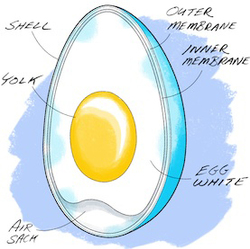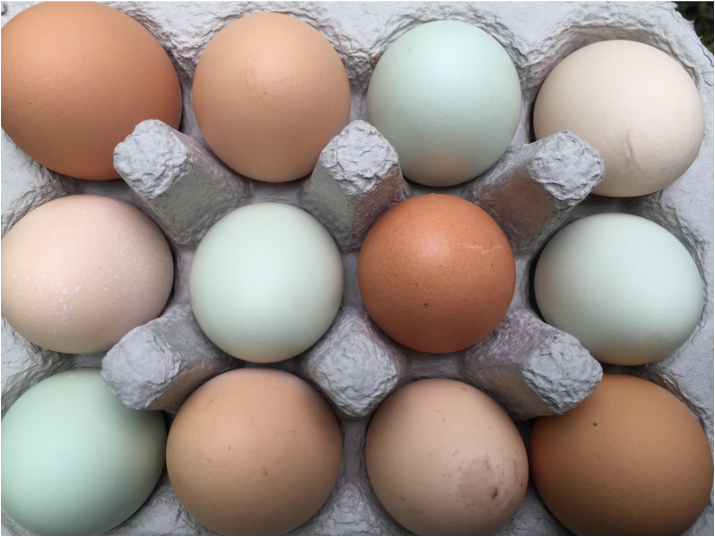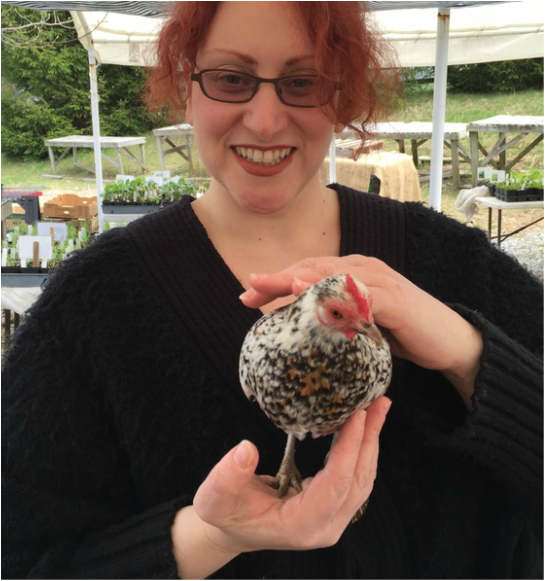 Photo from Scientific American Photo from Scientific American Let’s Talk About Eggs A quality egg is a rich, delicious, high protein food packed with mineral and nutrients that the body needs to thrive. Eggs are extremely versatile. They make our baked goods taste great. They can be poached, fried, scrambled, baked, pickled… You can turn them into omelets, frittatas, soufflés, meringues – even sushi! Eggs can add richness to a dish. They can bind ingredients together or lighten a batter when whipped. How do choose the best eggs? There are some great articles out there on how to determine the quality of an egg. This is a great guide from Mother Earth News. I prefer to buy organic eggs from local farmers that allow their chickens to roam free on their land. The woman I buy my eggs from feeds them non-GMO, soy-free feed. They also eat worms, bugs and all the other things chickens like to eat when they can wander through the grass. One of the first differences I notice is that their shells are much stronger than commercial eggs. It takes a little bit of effort to break them. Their yolks have a rich, gorgeous sunflower-yellow color and the taste is much better. The age of the egg matters! Eggs react differently to different types of cooking methods. Certain cooking methods require eggs of different ages. If you want a perfectly poached egg, you should always start with fresh eggs. You will see a distinct difference when you poach an egg that came from the chicken within 2-3 days. However, for hard-boiled eggs, an older egg (3-4 weeks) will peel and retain its shape much better and its yolk will set up more consistently. So if you are thinking about making deviled eggs, egg salad, Nicoise salad, or anything elese that requires you to begin with a hard boiled egg – you will want to keep those eggs in the fridge for about a month first. What’s inside an egg? According to the University of Illinois Extension, the average weight of an egg is 57 grams. “Eggs are especially valuable as a source of protein. In fact, egg protein is used as the standard against which the quality of other food proteins is measured. One egg contains about 6 to 7 grams of protein. People of all ages need adequate protein for building and repairing body tissues. The fat in the yolk is so finely emulsified that it is digested easily even by infants. The ratio of unsaturated to saturated fats is about 2 to 1. This is considered very desirable. Oleic acid is the main unsaturated fat. It has no effect on blood cholesterol. Eggs contain vitamin A, the B vitamins (thiamin, riboflavin, and niacin), and vitamin D. All are necessary during childhood and adolescence for growth. Eggs also contain an abundant supply of minerals, such as iron and phosphorus that are essential for building and maintaining strong, healthy bodies.” So that’s why body builders love them! Different types of eggs... There are so many different varieties of eggs that people choose to cook with from around the world. I've tried at least 15 different types of chicken eggs - from the tiny quail egg, to the small Bantam chicken egg (they make great foam for a whiskey sour) to brown, green and even blue chicken eggs, to the super rich and luxurious duck egg to the gigantic ostrich egg. Each egg variety has their own flavor profile. If you work in grams, you can adjust any recipe to account for the changes from egg to egg. Try them all -- each one is delicious -- and remember, they are good for you.
0 Comments
Your comment will be posted after it is approved.
Leave a Reply. |
DebI'm a home cook with a lifelong passion for learning, exploring and experimenting in my kitchen. You can find me at @Debs1 on Twitter and @Debs121212 on Instagram. Categories
All
Archives
July 2020
This website uses marketing and tracking technologies. Opting out of this will opt you out of all cookies, except for those needed to run the website. Note that some products may not work as well without tracking cookies. Opt Out of Cookies |


 RSS Feed
RSS Feed
